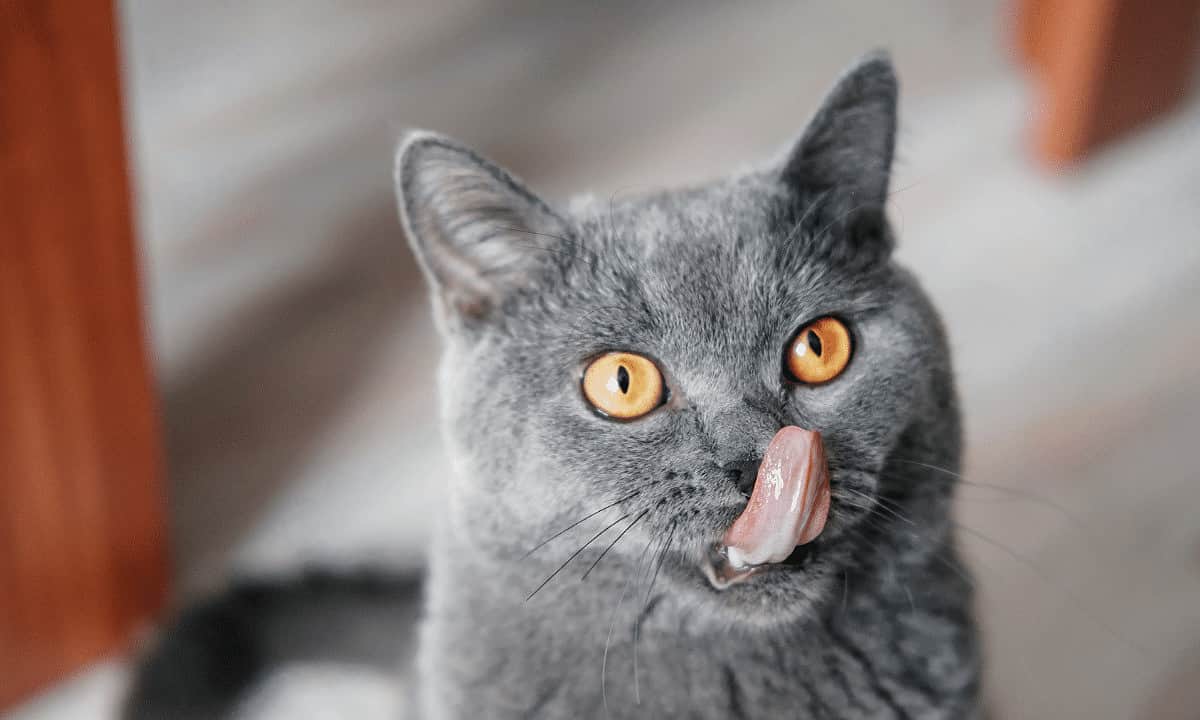Cats are curious creatures, and have a distinct tendency to get themselves into mischief! But did curiosity kill the cat? Well, in the case of some foods which are poisonous for cats, it may well make them quite unwell.
As a veterinarian, lifelong cat lover, and cat owner, I’ve built up a knowledge repertoire of foods that I wouldn’t leave anywhere near my kitties. Cats can be attracted to new scents, flavors, and textures, but many human foods are best left alone by our feline companions.
Cats’ digestive systems and physiologies are very different from ours, meaning they cannot tolerate some foods we find digestible, tasty, and even nutritious. Some foods may not be ideal nutritionally for cats, but some common human snacks are toxic and highly dangerous for pets.
As pet owners, we have a responsibility to provide optimal nutrition for our kitties and to keep anything that may cause harm out of reach. If you think your cat may have eaten something potentially bad for them, always seek veterinary advice.
Let’s have a look through some common foods which are poisonous to cats.
IN THIS ARTICLE
Alcohol | Caffeine | Chocolate | Milk | Ice cream | Raw eggs | Raw meat and fish | Fat trimmings | Liver | Bones | Salt | Raw dough | Bay leaves | Avocado | Grapes and raisins | Citrus fruits | Cherries | Plums | Coconut water | Mushrooms | Onions and Garlic | Unripe Tomatoes and Raw Green Potatoes | Dog food
Alcohol
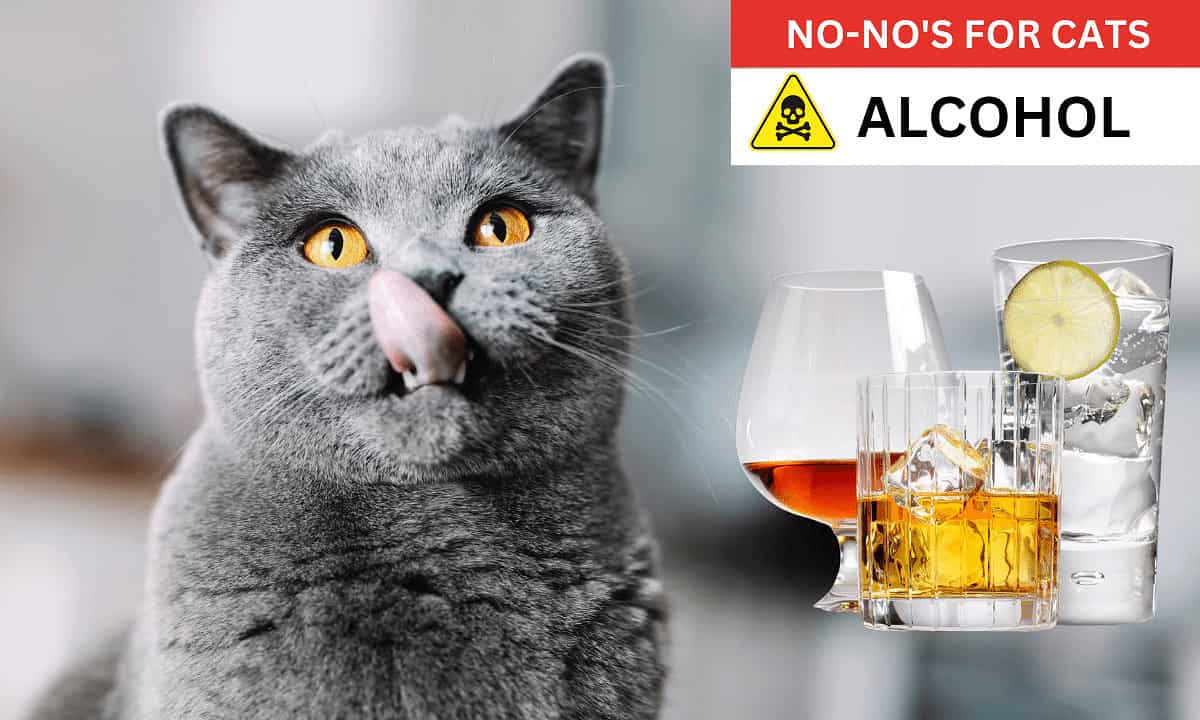
Any alcoholic beverage is a big no-no for a cat.
Even small amounts are very harmful, causing liver and brain damage.
Symptoms include vomiting, diarrhea, breathing difficulties, tremors, seizures, and coma, and can be rapidly fatal.
Never leave alcoholic beverages open and unattended; clean up spills quickly and thoroughly.
Caffeine
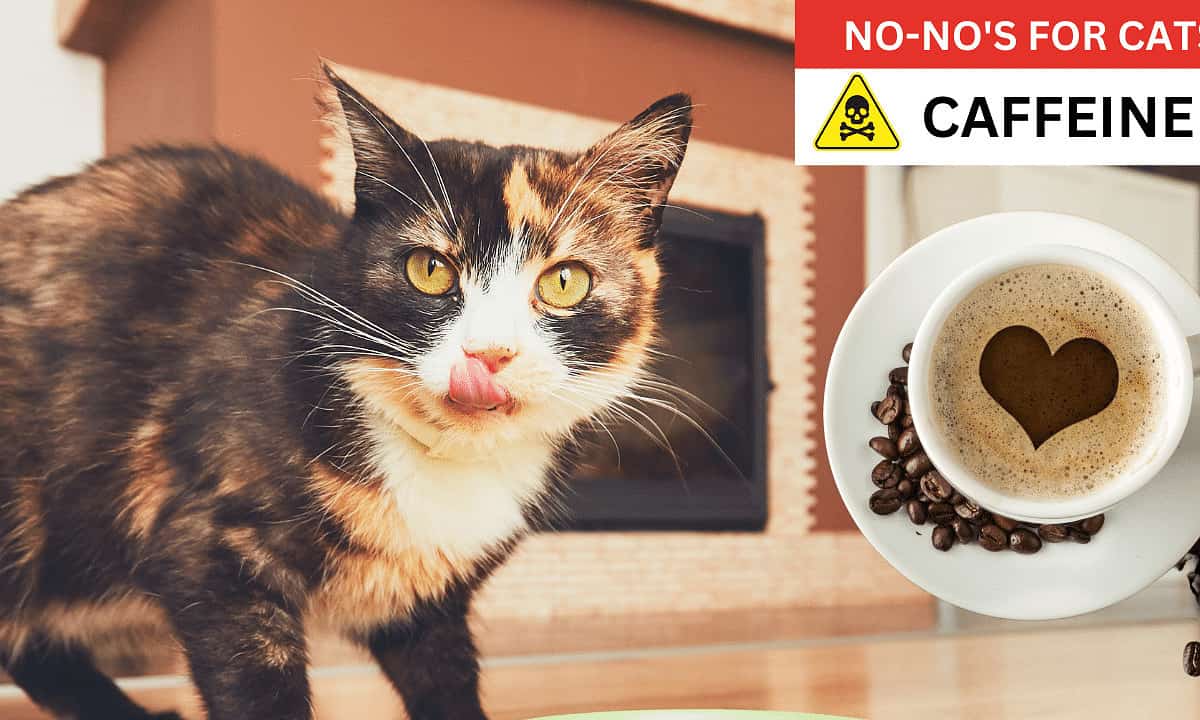
Found in tea, coffee, chocolate, some soft drinks such as cola, and in some medicines, caffeine is more common than you might think.
Symptoms in cats include hyperactivity, rapid breathing, abnormal heart rhythms, muscle tremors, and seizures. It can be fatal in high enough quantities.
Chocolate

The toxic ingredient in chocolate is called theobromine, present in most chocolate but with the highest concentrations found in dark chocolate.
Theobromine’s toxic effects include altered heart rhythms, liver and kidney failure, and seizures.
Milk
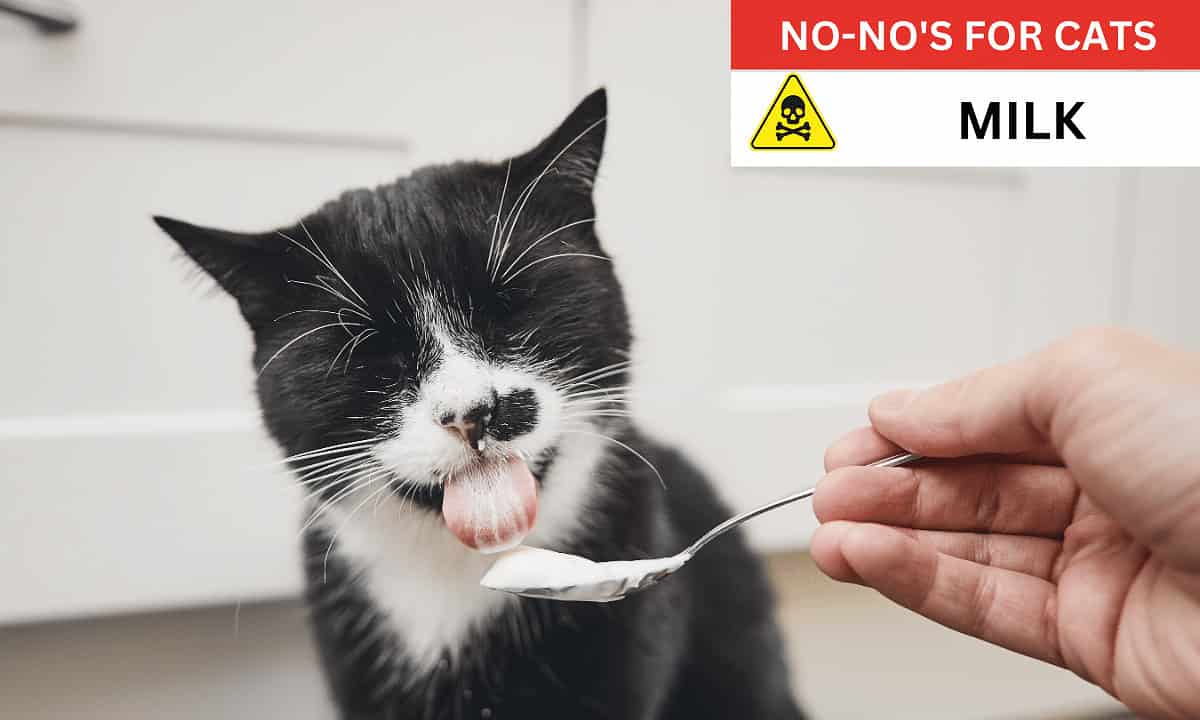
Most adult cats are lactose-intolerant, lacking the enzyme needed to properly digest dairy products.
Milk can so cause tummy upsets, including diarrhea and vomiting.
Ice cream

Ice cream is a dairy product, so is unsuitable for most cats, who are often lactose-intolerant.
Even if your cat seems able to stomach small amounts of milk products, ice cream is bursting with sugar, which is not good for your feline pet.
Raw eggs
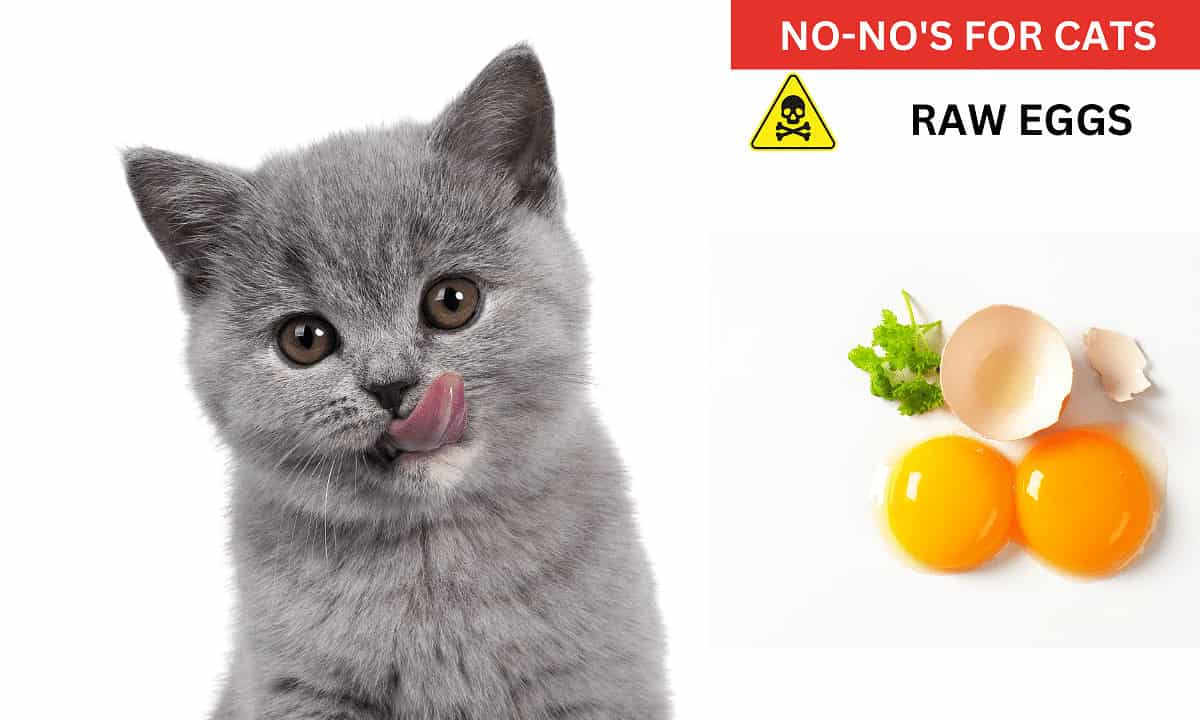
Raw eggs can contain bacteria such as E. Coli or Salmonella, both of which can cause food poisoning, with symptoms including severe vomiting and diarrhea.
These microorganisms can also be passed to people and other pets. Raw eggs also contain the avidin protein, which interferes with the absorption of biotin (a B vitamin). A biotin deficiency can cause problems with the skin and coat.
Raw meat and fish
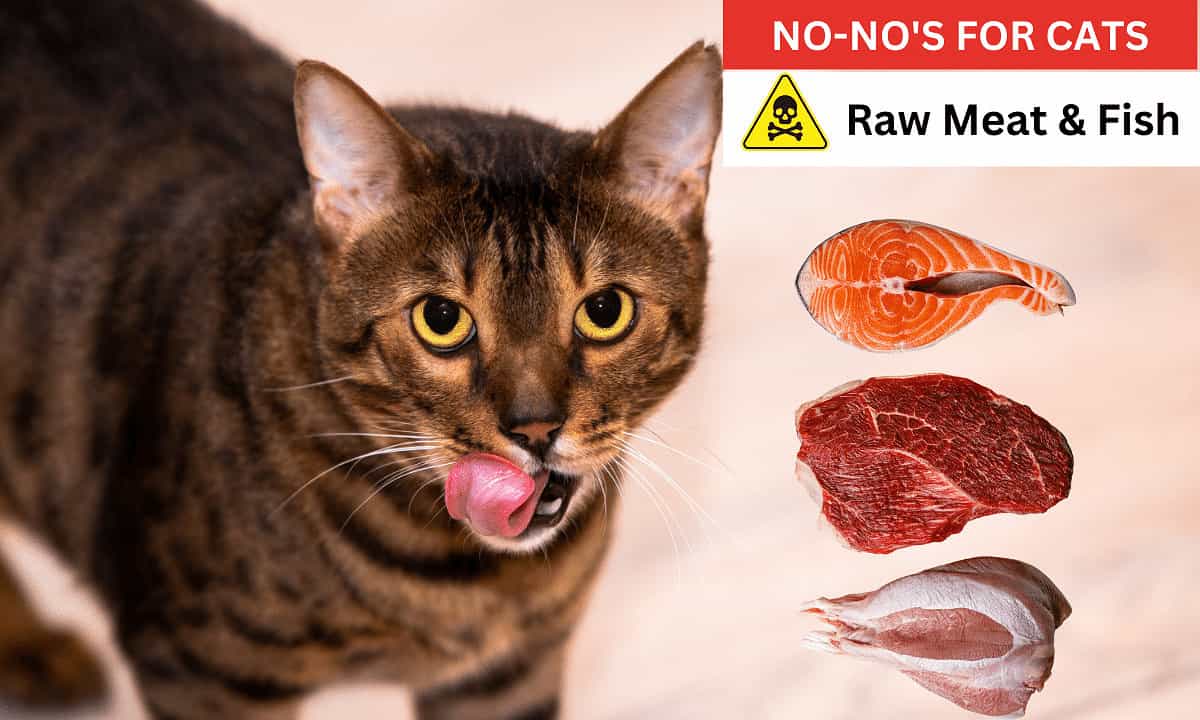
Raw meat and fish can also contain bacteria that cause food poisoning symptoms.
Additionally, an enzyme found in raw fish can degrade an essential nutrient for cats called thiamine. A deficiency in this B vitamin can lead to neurological disease.
Fat trimmings
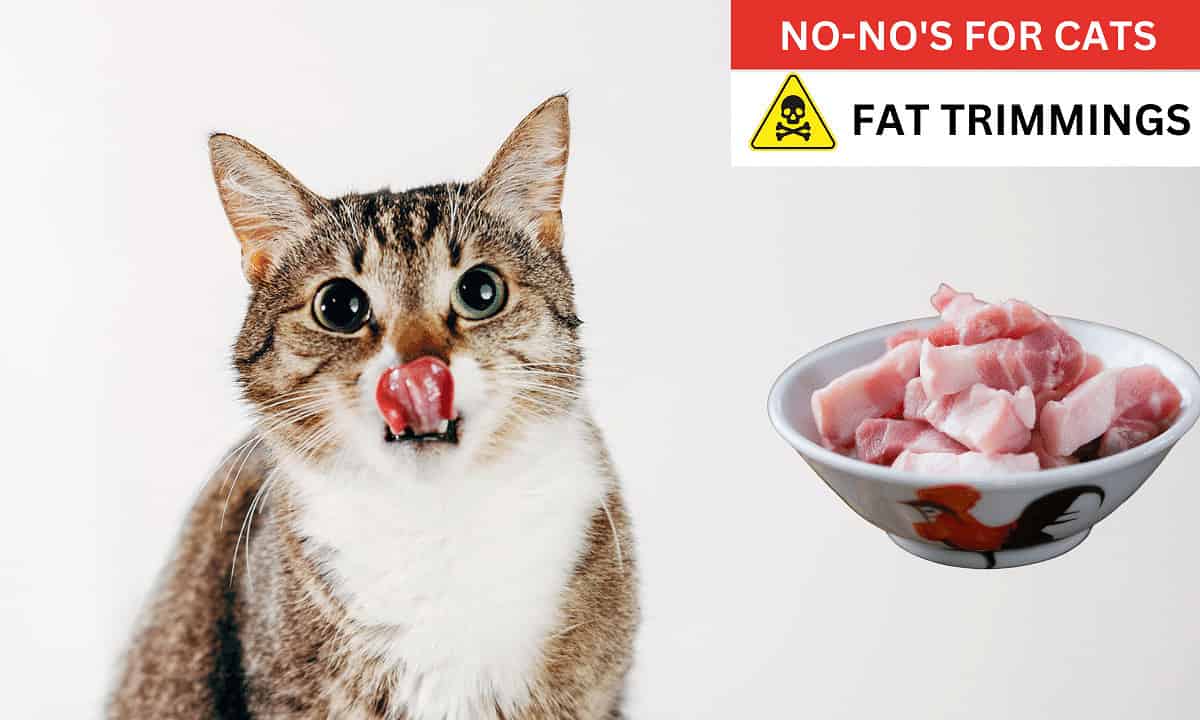
It may seem like a treat for a cat to receive the fat trimmings from meat, but they can be harmful.
Both cooked and raw fat can cause tummy upsets with vomiting and diarrhea, and the high-fat level can even lead to pancreatitis.
Liver
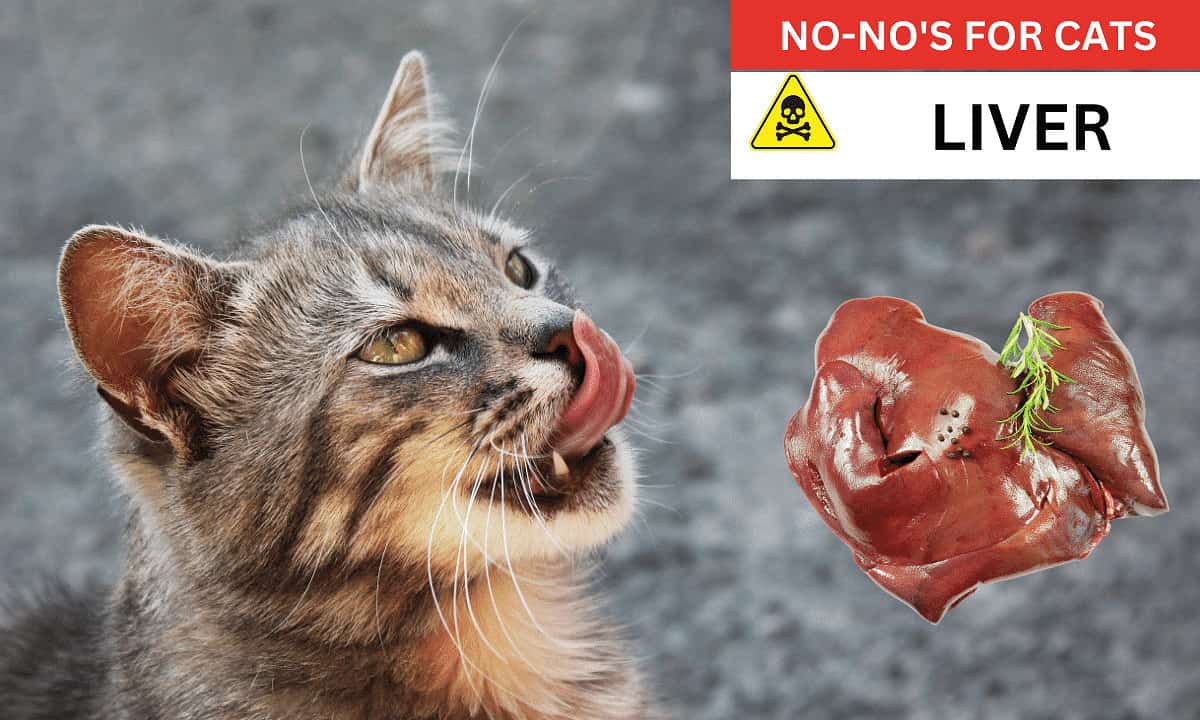
In small amounts, the liver is not a concern for cats.
But, if fed in excess, the liver can become harmful as it contains high levels of Vitamin A. Toxicity with Vitamin A can cause bony symptoms such as osteoporosis or deformities. High levels of Vitamin A can be fatal.
Bones
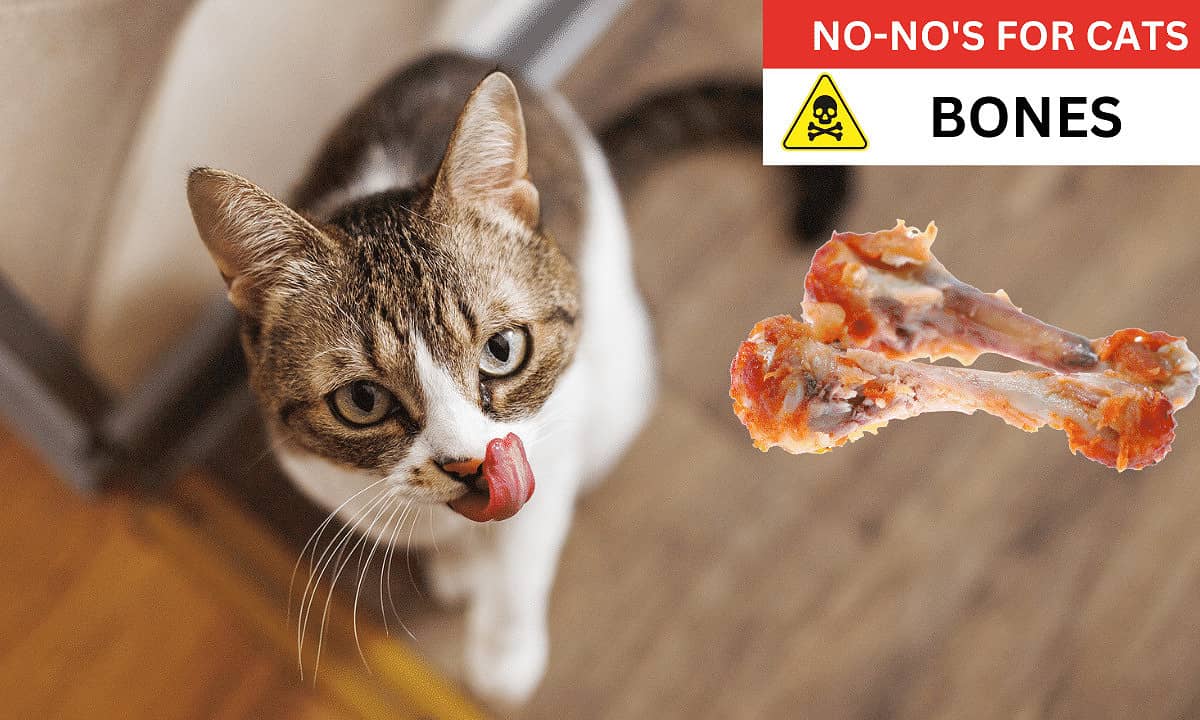
Bones (both cooked and raw) can cause multiple hazards for cats.
They can lead to choking, damage to the inside of your cat’s gastrointestinal tract, obstruction, and impaction.
Salt

Foods high in salt aren’t good for our feline friends.
Salt poisoning presents with vomiting, diarrhea, excessive thirst, lethargy, incoordination, muscle tremors, and seizures.
Foods that are high in salt should be avoided for pets, alongside other household products such as salt dough and rock salt de-icing products.
Raw dough
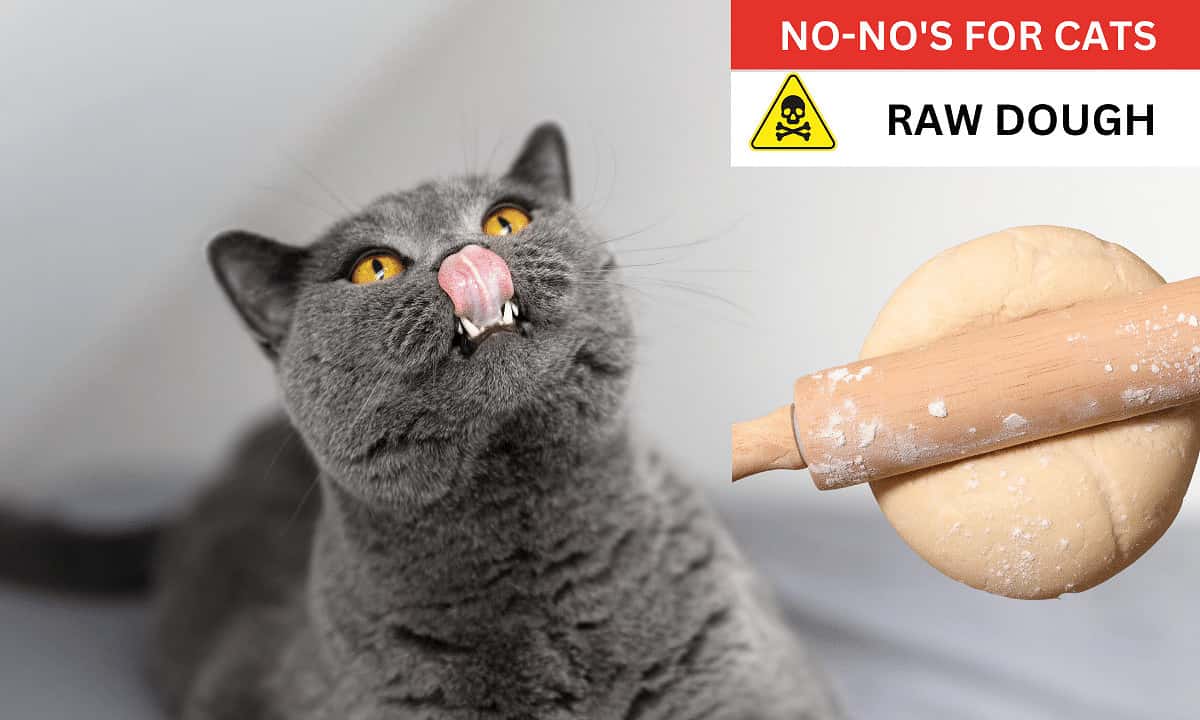
Yeast-containing doughs can swell inside your cat’s stomach, causing abdominal pain and internal damage.
The fermentation process also produces alcohol, which is toxic to cats.
Bay leaves
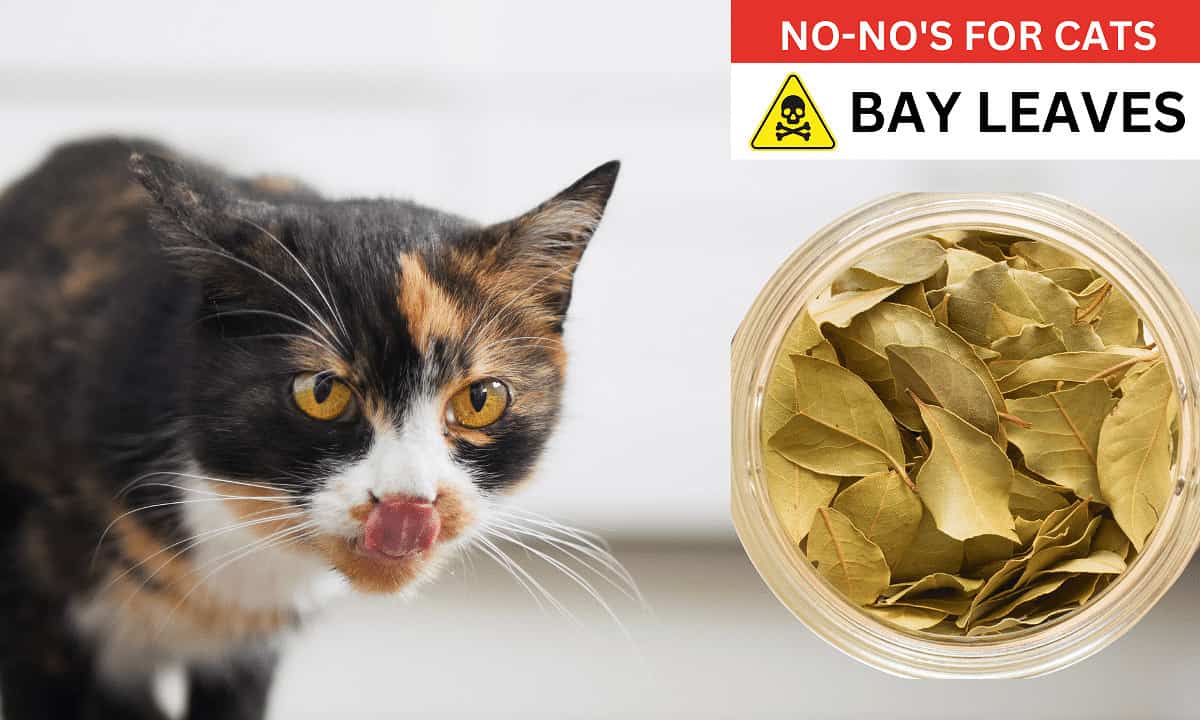
These aromatic leaves are commonly used in home cooking.
However, they contain eugenol, which can irritate the digestive tract in cats and cause vomiting and diarrhea.
Ingested in large amounts, they can also cause an intestinal blockage, although it would be unusual for cats to eat many due to their strong flavor.
Avocado

The fruit of the avocado, as well as the leaves, seeds, and bark, contain persin.
This can be mildly toxic to cats, causing vomiting and diarrhea. The high-fat content can also predispose to pancreatitis and enteritis.
Grapes and raisins
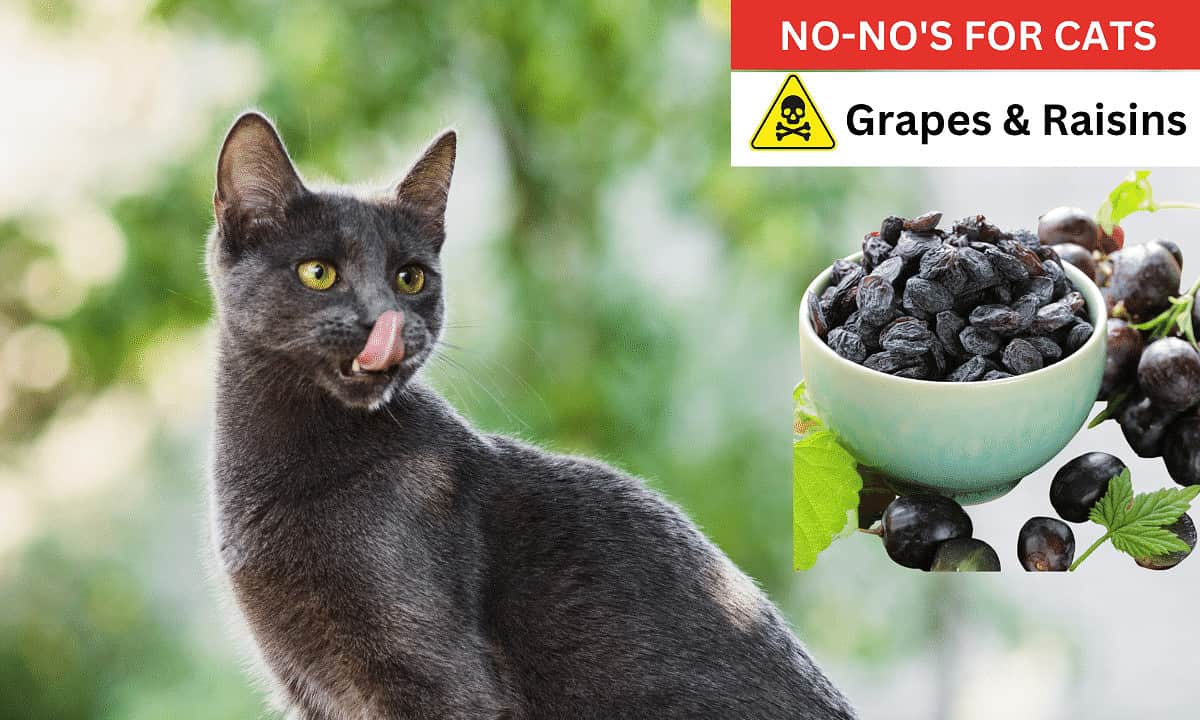
Grapes and their derivatives (raisins, sultanas, and currants) can be poisonous to cats.
The mechanism is not completely clear, and some cats seem unaffected, but others develop acute kidney failure with only small amounts ingested, so it’s best not to take the risk.
Symptoms include vomiting, lethargy, and changes to urination.
Citrus fruits
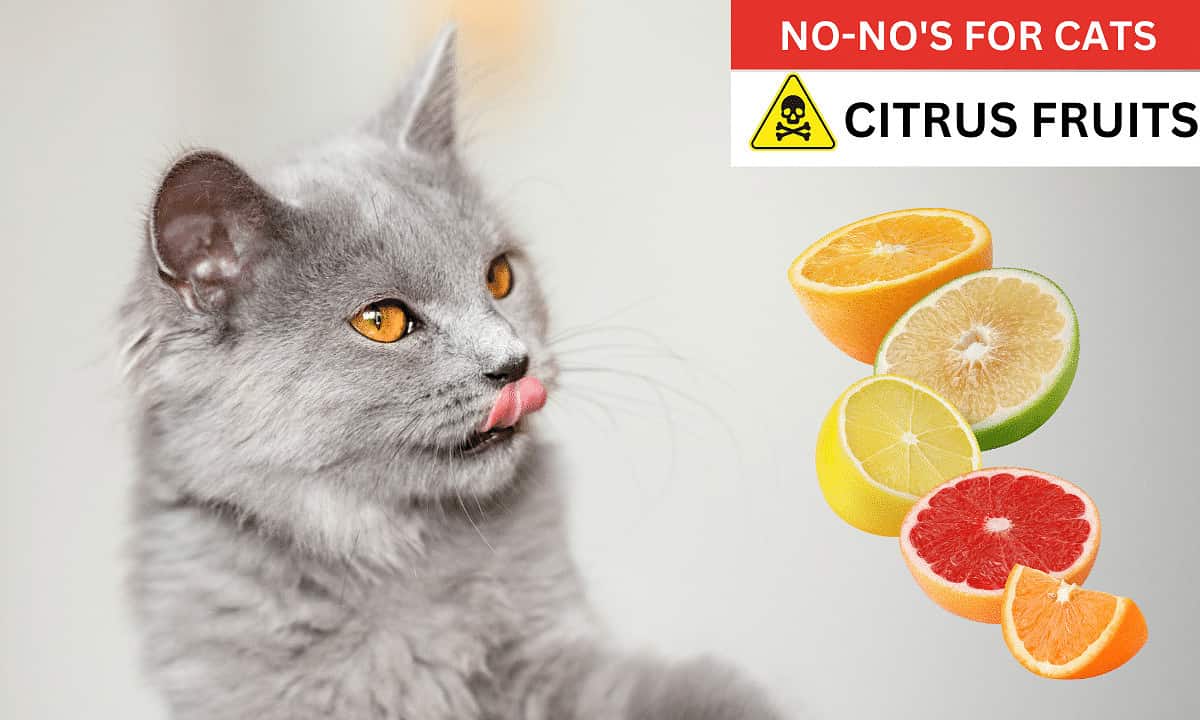
Most citrus fruits – lemons, oranges, grapefruits, and limes – are repellent to cats.
This is good, as the essential oils (d-limonene and linalool) contained in all parts of the fruit, but especially the peel can be toxic.
Symptoms include vomiting, diarrhea, drooling, weakness, depression, and seizures.
Cherries
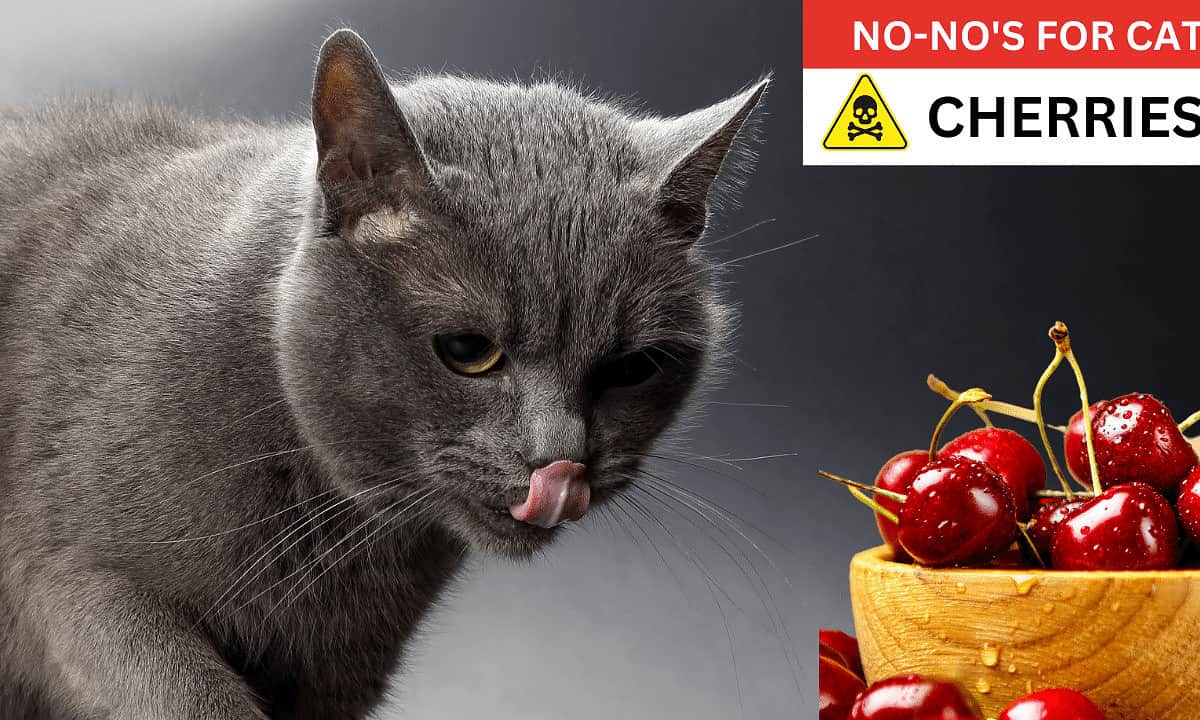
Although the ripe flesh of a cherry is not poisonous to cats, they are best avoided as other parts of the plant such as the pit, stem, and leaves are extremely toxic.
They contain cyanide, which can cause acute illness in cats who are very sensitive to its effects, which include breathing difficulties, dilated pupils, brick-red gums, confusion, and collapse.
Plums
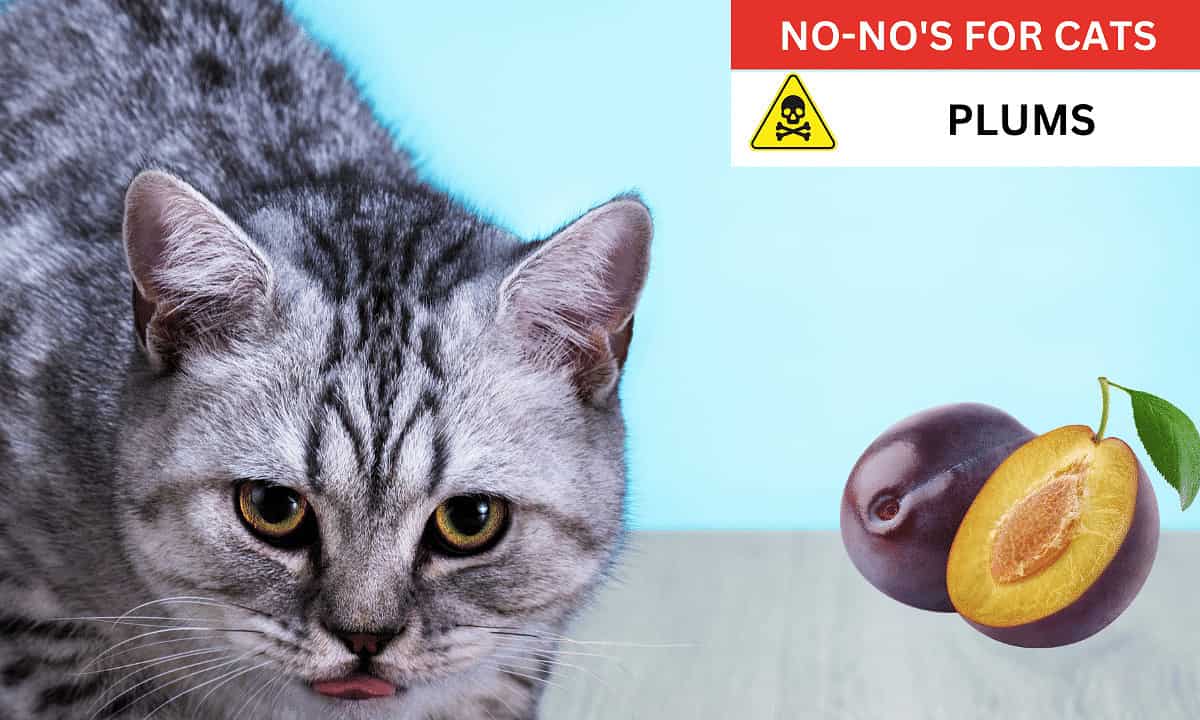
Similarly to cherries, plums can contain cyanide in their stems, leaves, and seeds. Cyanide levels are especially high as the plants wilt.
These fruits can cause acute toxicity in cats, with symptoms of breathing difficulties, red gums, dilated pupils, and collapse. Veterinary treatment is essential, urgently.
Coconut water
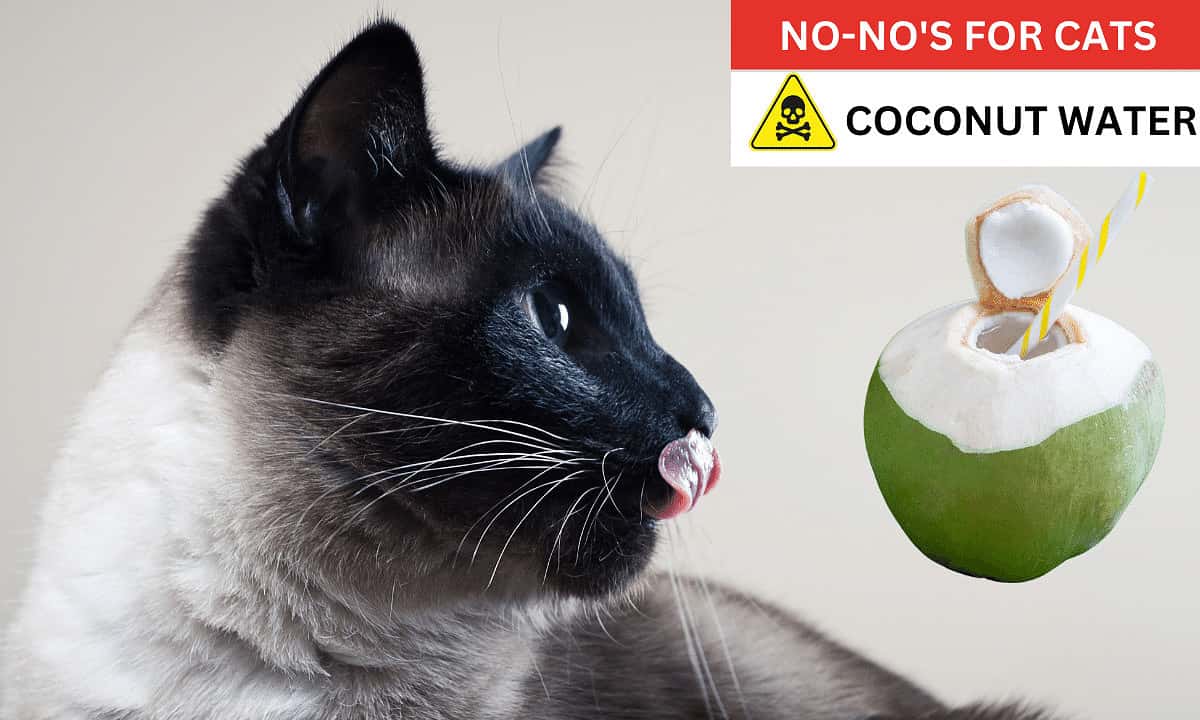
The flesh of coconuts, although high in fat, is not toxic to cats in small quantities. But
But, coconut water (the liquid found inside unripe coconuts) is very high in potassium.
Excess potassium can cause changes to blood acidity and affect the heart muscle and can make cats ill.
Dogs and cats require a very different balance of nutrients, and feeding a cat with dog food long-term will result in nutritional imbalance and deficiencies.
Mushrooms
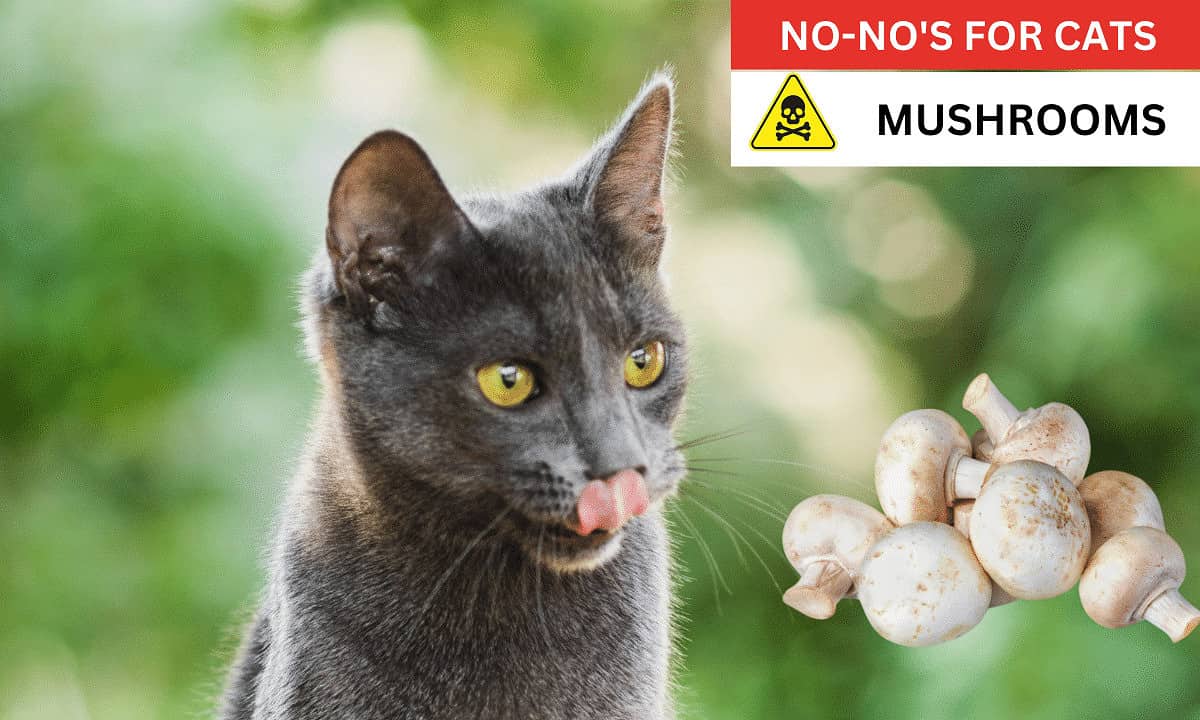
There are lots of different varieties of mushrooms. Those bought from a supermarket are unlikely to cause a problem for cats in small quantities, but wild mushrooms can be extremely toxic if you are not highly skilled in identification.
Symptoms of poisonous mushrooms can include vomiting, diarrhea, weakness, breathing difficulties, changes to heart rate and rhythm, muscle tremors, and seizures.
Onions and Garlic
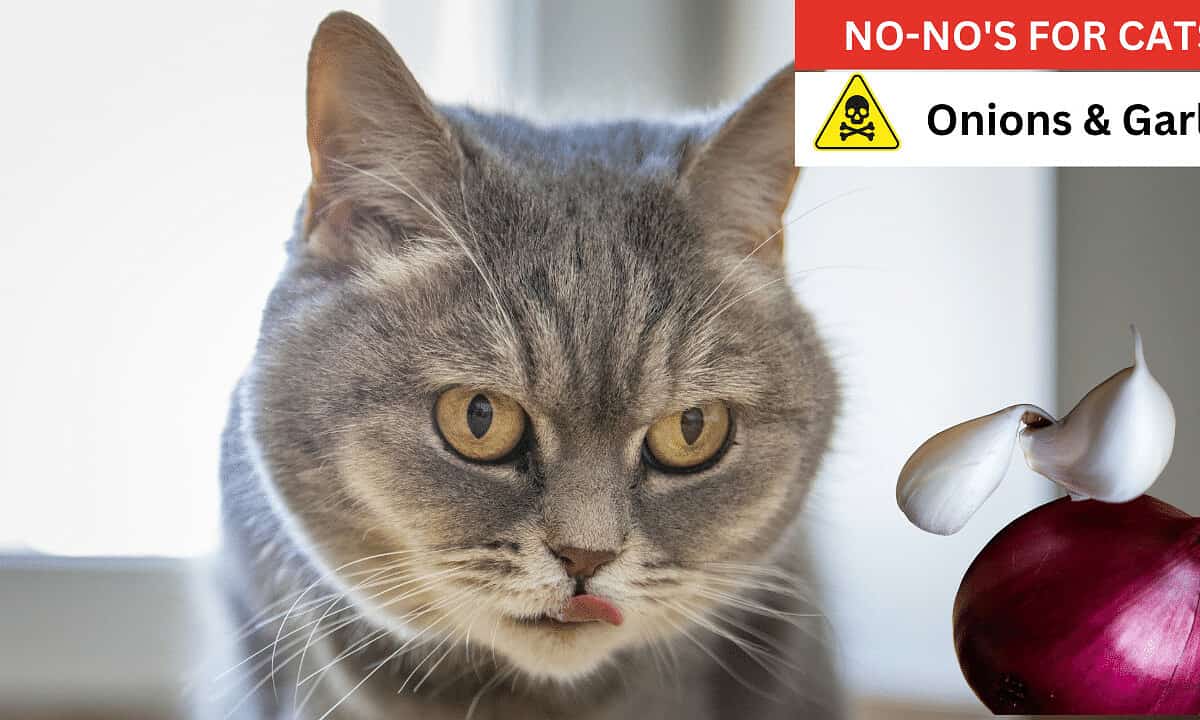
Onions, garlic, and shallots are all poisonous to cats – in all forms, whether raw, cooked, or powdered.
This includes onions and garlic cooked in other foods such as in soups or bread.
They affect the red blood cells of the body, leading to anemia which can be fatal.
Symptoms include lethargy, weakness, pale gums, and discolored urine. Veterinary attention should be sought immediately if ingestion is known or suspected.
Unripe Tomatoes and Raw Green Potatoes
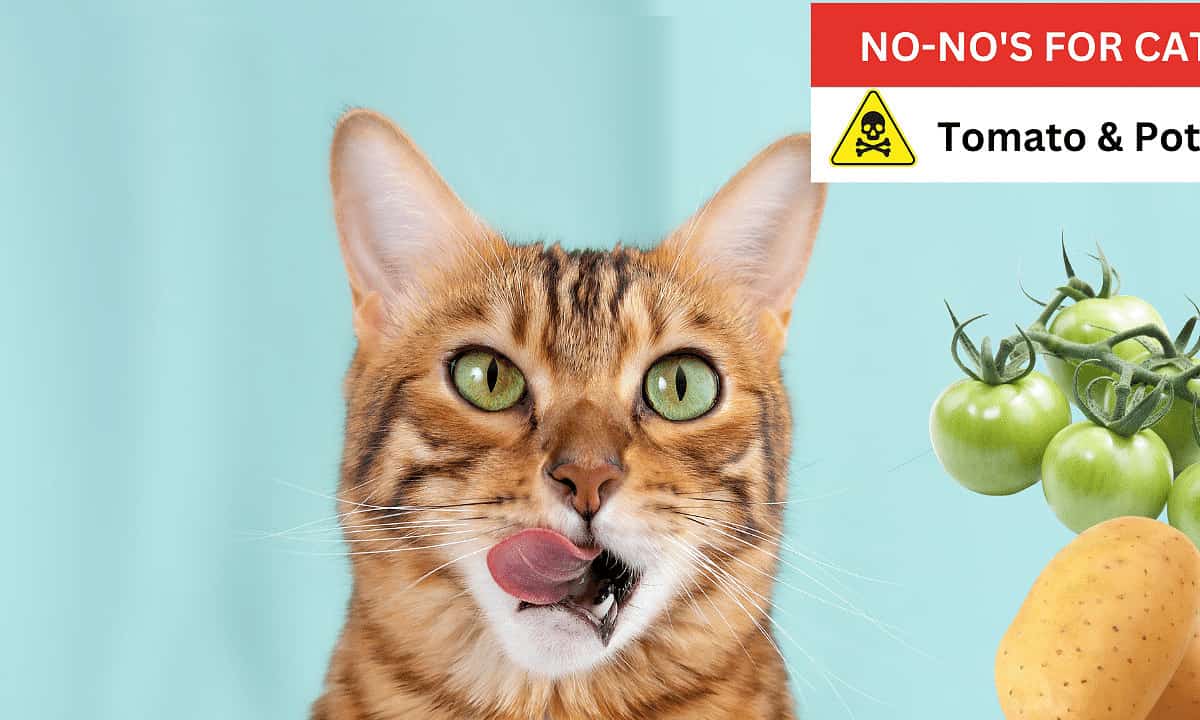
Unripe green tomatoes and potatoes contain a poisonous alkaloid substance called glycoalkaloid solanine, which is most concentrated in the leaves and stems but also in the plants. It is bitter, but if ingested can cause severe vomiting and diarrhea.
Dog food
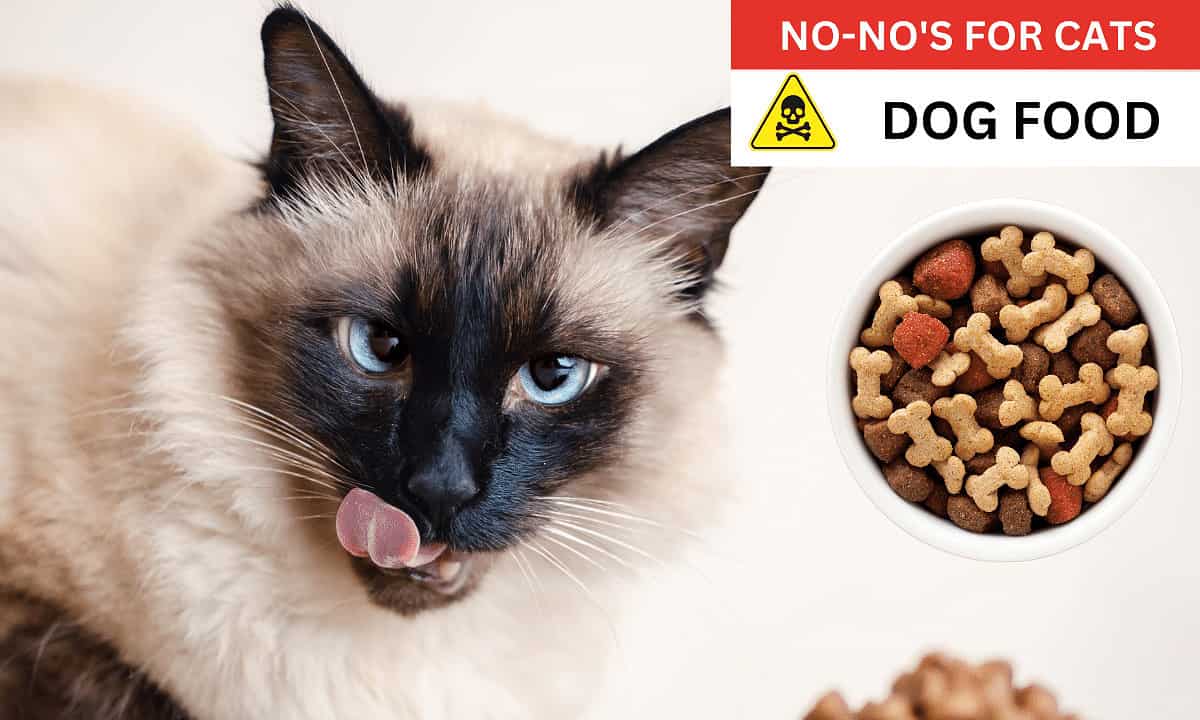
Whilst small amounts of dog food are very unlikely to cause problems for your cat, it is not suitable as a sole diet.
Protecting Your Cat
The list of problematic foods for cats is long! Here are some top tips to keep your cat safe:
- Keep food out of reach or shut away
- Don’t let cats up onto work surfaces when preparing or eating food
- Avoid giving table scraps
- Ask visitors and other family members not to feed the cat
If you think your cat has eaten something which may not be safe, call your veterinarian immediately for advice.

